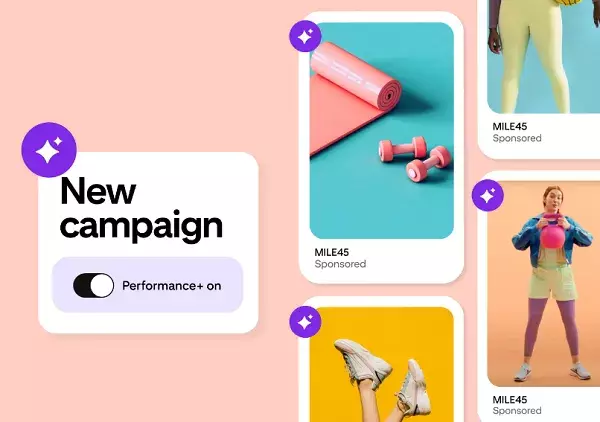In the dynamic landscape of digital marketing, the need for efficient advertising solutions has never been more crucial. With platforms continually adapting and evolving, Pinterest has recently joined the fray by introducing its automated advertising solution, dubbed Performance+. This initiative mirrors similar offerings from larger competitors, notably Meta’s Advantage+ AI-powered campaigns, which have set a precedent for employing machine learning to streamline ad management. As brands navigate the complexities of online advertising, understanding the implications and functionality of Pinterest’s Performance+ is essential.
Pinterest’s Performance+: A Game-Changer for Advertisers
Pinterest’s rollout of Performance+ introduces a new tier of advertising that promises to significantly enhance user engagement and return on investment. This suite empowers advertisers with the ability to utilize automated processes across various campaign types, specifically targeting Consideration, Conversions, and Catalog Sales objectives. The platform’s assurance of improved efficiency is built upon user-centric algorithms that analyze vast amounts of data to optimize targeting strategies, budget allocation, and ad creation processes.
One noteworthy feature of Performance+ is its potential for systematic assistance. It encompasses not only targeting and budgeting but also the generation of compelling ad creatives through integrated AI tools. This end-to-end automation poses an intriguing possibility for marketers: the ability to relinquish some degree of control over campaign specifics while relying on advanced algorithms to drive better results. For businesses, this raises a pivotal question: Is it worthwhile to trust AI-driven automation over manual oversight?
Proven Success Rates: What Data Reveals
Early tests of Performance+ have yielded promising results. According to Pinterest, advertisers participating in alpha and beta testing observed improvements in critical performance metrics—specifically, a more than 10% enhancement in cost per acquisition (CPA) for conversion-focused and catalog sales campaigns. Moreover, a comparable increase in cost per click (CPC) for consideration initiatives suggests that the system is not only effective but also efficient in optimizing ad spend.
While the allure of automated processes is strong, marketers must weigh these advantages against the inherent risks of diverting control to AI. Striking a balance between automation and manual oversight is crucial, particularly in industries where custom tailoring campaigns based on nuanced customer insights can lead to competitive differentiation.
Performance+ isn’t solely about automation; it also aims to enhance the shopping experience for users. Pinterest’s initiative to showcase personalized promotions, based on user engagement such as searches and pinned content, bridges the gap between advertisers and potential customers in a meaningful way. This system not only boosts visibility for brands during critical sales periods but also ensures that users receive tailored offers that resonate with their interests.
The upcoming holiday season presents a fresh opportunity for brands to harness Performance+ capabilities effectively. By registering relevant promotions through Pinterest channels, companies can ensure their offerings are front and center when consumers are most receptive. The thoughtful integration of ad modules within user feeds not only transports offers directly to potential buyers but also increases brand presence during peak purchasing times.
As Pinterest continues to refine and enhance its Performance+ campaigns, the platform’s growing role in product discovery and marketing strategies cannot be overstated. While the adoption of advanced AI systems in advertising may seem daunting, the potential for improved ROI and streamlined processes illustrates why brands should consider integrating these solutions into their marketing mix.
As brands adapt to an evolving digital marketing landscape, Pinterest’s Performance+ marks a significant step towards a future where automation enhances creativity and personalization. Embracing this shift could redefine how businesses connect with consumers, particularly in a world that increasingly values relevance and engagement over traditional advertising tactics. Through its innovative approach, Pinterest is not just evolving its ad offerings—it’s shaping the future of digital marketing itself.

